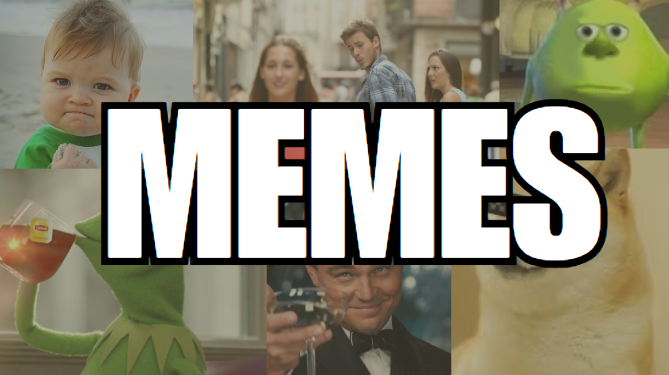Whether you’re an 85-year-old grandpa, or a two-year-old toddler, you’ve probably been shown an internet meme at one point or another. Although they’re just an image with some overlayed text, they have an impactful way of bringing joy into our lives. But where did memes come from? Why are they so popular? And what dark secrets are they hiding? The answers might not be what you think.
The word “meme” was first coined by evolutionary biologist Richard Dawkins in 1976. In his book, “The Selfish Gene,” Dawkins describes how memes are the cultural equivalent of biological genes. Like human genes, memes carry out information and are transmitted from person to person. They can grow, change, and mutate over time. Although memes have since evolved into the internet sensation we see today, they still hold the core traits described by Dawkins. They can be a powerful agent in both connecting and dividing people in society.
But what makes a meme so enjoyable? For one thing, they’re usually relatable; people easily connect over shared ideas, beliefs, and goals. For another, their visual format prompts us to apply thought in order to understand the joke. This makes it engaging for our brains to decipher the hidden meaning within the meme – and we’re rewarded with a laugh. But there’s more to memes than just entertainment. They can quickly become massive internet titans that change the course of history.
In 2010, a schoolteacher uploaded an image of her two-year-old Shiba Inu to the internet. Unbeknownst to her, this image would soon evolve into the Doge meme that swept the public eye. As a result, it created a new line of humor of pets speaking broken English, as well as two cryptocurrencies: Dogecoin and Shiba Inu, which at their peak were worth a combined total of $100 billion. It’s impossible to predict which things become memes and which don’t, but there’s no denying the power a popular meme can hold.
However, as with most things on the internet, memes can have harmful effects on individuals and society. Because of their bite-size packaging, misinformation and stereotypes are often a common side effect of memes. It’s easy to look at a meme and chuckle at a seemingly harmless joke, without even knowing the context behind it. Unconsciously, your brain has assumed about the situation that may not be entirely accurate. During the COVID-19 pandemic there were many memes shared on the internet targeting China for the outbreak of the virus. Conspiracy theories about vaccines and the Chinese government gained mass popularity and spread false information through these memes.
Memes are unpredictable, powerful, and world changing. Since the dawn of the internet, memes have undergone many transformations, but one thing has remained consistent: They are just plain funny!















